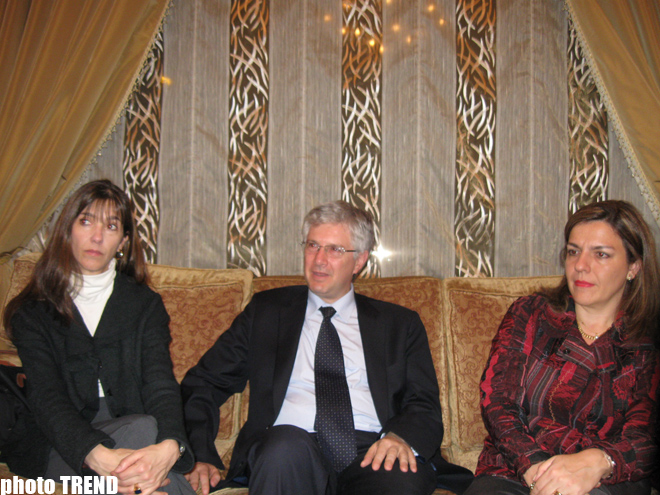Azerbaijan, Baku, Oct. 14/ Trend, E.Ostapenko/
Colombia fully supports Azerbaijan's candidacy for United Nations Security Council's (UN SC) non-permanent membership, Colombian Foreign Ministry's official told journalists in Baku today.
"We are supporting Azerbaijan. We hope that we will have this year to share the Security Council, so that we can really coordinate," said Colombian Vice-Minister of Multilateral Affairs Ms. Patti Londono Jaramillo which is with first visit to Azerbaijan with official delegation.
Colombia will be non-permanent member of UN SC for one more year.
"The experience of cooperation [between Colombia and Azerbaijan] within the Security Council this year would be very useful," she said.
Azerbaijan announced itself a candidate for UN SC's non-permanent membership for 2012-2013 during the 66th annual session of UN General Assembly in New York late September. The elections are scheduled for the next week.
Non-permanent members of UN SC are selected by regional groups. Azerbaijan's rivals this time are Slovenia and Hungary.
"Latin America is more disciplined in this way," the Vice-Minister joked. "We have only one candidate which is Guatemala. We wish Azerbaijan all the best in this way".
The Council is composed of five permanent members - China, France, Russia, the United Kingdom and the United States - and ten non-permanent members. Among non-permanent members of the UN SC are now Bosnia and Herzegovina, Brazil, Colombia, Gabon, Germany, India, Lebanon, Nigeria, Portugal and South Africa.
Ten non-permanent members are elected by the General Assembly for two-year terms and not eligible for immediate re-election. The number of non-permanent members was increased from six to ten by an amendment of the UN Charter in 1965.
Each Council member has one vote. Decisions on procedural matters are made by an affirmative vote of at least nine of the 15 members. Decisions on substantive matters require nine votes, including the concurring votes of all five permanent members. This is the rule of "great Power unanimity", often referred to as the "veto" power.
While other UN organs make recommendations to Governments, the Council alone has the power to take decisions which member states are obligated under the Charter to carry out.






